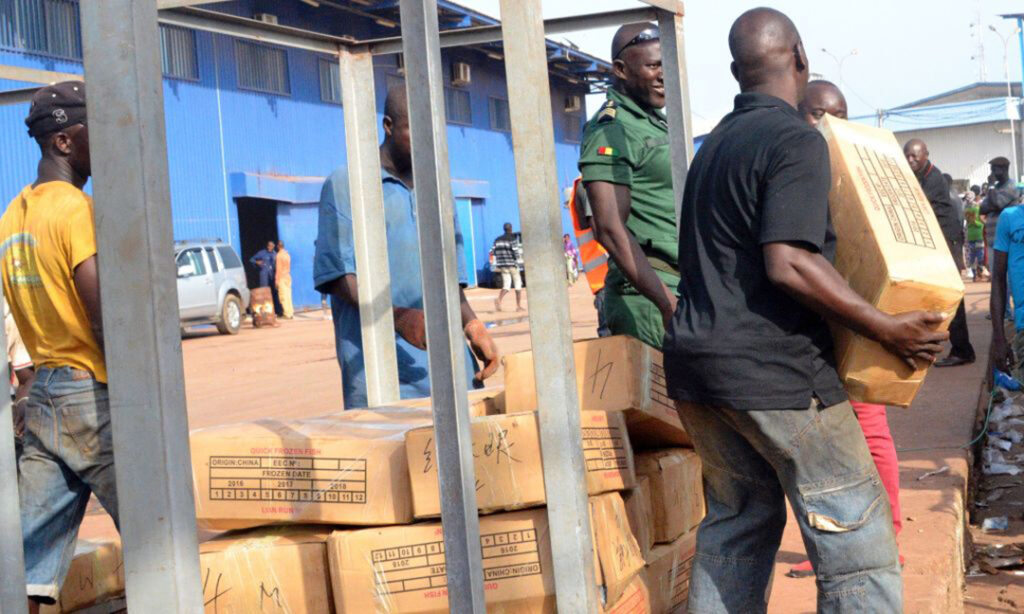ADF STAFF
Participants from 14 African nations completed the International Security Management Institute (ISMI) Level 2 Fishery Inspector Training Course in Côte d’Ivoire in March.
The four-day course in Abidjan offered technical training at the second level of a professional curriculum for fisheries inspectors. Financed by France, the course was led by experts from Côte d’Ivoire and the European Fisheries Control Agency, according to online news publication ModernGhana. ISMI held a Level 1 course in 2021.
The aim was to train fisheries inspectors to more effectively address illegal, unreported and unregulated (IUU) fishing in the Gulf of Guinea, where experts say up to 60% of all fish are caught illegally.
Guillaume Turquet de Beauregard, regional coordinator of France’s State Action at Sea, an administrative and operational organization, stressed that the complicated, transnational nature of sea crimes demands cooperation among regional bodies, including information sharing, joint operations and other participation in other regional maritime training exercises.
“This is why this seminar is of particular importance and must be treated with the utmost seriousness,” Turquet de Beauregard said in the ModernGhana report. “IUU fishing is a key factor that contributes to the strengthening of maritime insecurity in the region. The training and strengthening of the skills of fisheries inspectors is not a luxury, but a necessity that appears more urgent every day. It is this kind of initiative that must be encouraged at all costs. ISMI is trying at its modest level to change the course of things.”
China commands the world’s largest distant-water fishing fleet and has targeted West Africa for decades — with devastating results for the region. Illegal fishing costs West Africa almost $1.95 billion across the fish value chain and $593 million per year in household income. IUU fishing also has been linked to piracy, human trafficking, and drugs and weapons smuggling, and the region’s rapidly diminishing stocks drive food insecurity.
According to the IUU Fishing Index, China is the world’s worst IUU offender. The presence of foreign trawlers also forces local artisanal fishermen to venture much farther out to sea, often returning with little or no catch. Authorities are hampered by a lack of patrol vessels to monitor the Gulf of Guinea’s combined coastline of more than 6,000 kilometers.
One of the main challenges for the region’s fisheries inspectors is the language barrier when they interact with the crew of foreign vessels. In 2021, Trygg Mat Tracking, a fisheries intelligence analysis company, and Stop Illegal Fishing, an independent, Africa-based nonprofit group, developed a pocket-size, waterproof phrase book for fisheries inspectors to use during vessel inspections.
The book, which has key phrases in seven languages, was distributed to members of the Fisheries Committee for the West Central Gulf of Guinea’s (FCWC) West Africa Task Force.
“This phrase book adds to the resources developed to help officers conducting vessel inspections at sea or in port,” Per Erik Bergh, coordinator of Stop Illegal Fishing, said on the FCWC’s website. “Vessel inspections provide a critical control point: making sure that communication is clear and there are no misunderstandings on the information requested is crucial. We hope the [book] will prove to be a useful tool in the FCWC region and beyond.”

